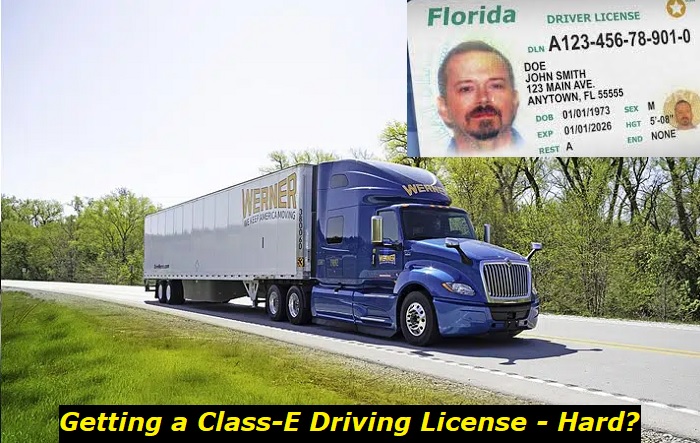How to Get Class E License? Here Are Some Tips to Make it Easier
Obtaining a driver's license is often seen as a key milestone in modern life. It's challenging to navigate today's world without a vehicle. However, it's crucial to understand that not all driver's licenses are created equal.

The Diversity of Driver's Licenses
While a standard license suffices for most, driving larger vehicles necessitates a specialized Class E license. This license opens doors to numerous career opportunities in sectors like construction, transportation, and agriculture, where operating heavy vehicles is commonplace.
Understanding the Class E License
A Class E license is essential for legally driving specific large vehicles, including school buses, passenger vans, and certain trucks. In contrast, the more common Class D license is limited to personal vehicles such as cars, vans, and SUVs. This distinction is the primary difference between the two license types.
Assessing the Need for a Class E License
Before rushing to obtain a Class E license, evaluate your needs. A Class D license is adequate for most personal driving. However, if you intend to operate larger vehicles, consider the following:
- Will you use the vehicle commercially (excluding transporting goods for sale)?
- Do you need to drive a vehicle capable of carrying up to 14 people (like a bus or passenger van)?
- Will you operate a vehicle weighing up to 26,000 pounds (such as a large truck or garbage truck)?
Answering 'yes' to these questions indicates a need for a Class E license. Remember, specific requirements vary by state, and additional qualifications might be necessary for certain vehicle types, such as those carrying hazardous materials.
Acquiring a Class E License
Imagine seeking employment in construction or waste disposal, where driving a passenger van is a prerequisite. To obtain a Class E license, you'll typically undergo a driving test, which may resemble the one for your Class D license but with state-specific variations.
For instance, in New York, the knowledge and driving tests for a Class E license are almost identical to the standard test. Visiting your nearest DMV will provide insights into any special requirements, setting you on the path to your desired job.
Essential Knowledge for Your Class E License
Being well-prepared can mean the difference between passing and failing your Class E license test on the first try. Understanding the test expectations and specific requirements is key.
Age and Health Requirements
Like the standard license, the minimum age for a Class E license is typically 16. Health assessments, such as vision or hearing tests, might be required, varying by state. Some states may require only one of these tests.
Ensuring Fitness for Driving Heavy Vehicles
States may require a health certification to ensure you are fit to safely operate heavy vehicles. This could involve a general health checkup.
Knowledge Exam
Depending on the state, holders of a standard driver's license might be exempt from a separate knowledge exam for the Class E license.
Tips for Obtaining a Class E License
Earning your Class E license can be straightforward with the right approach. Here are some tips to ease the process:
1) Understand State-Specific Requirements
Each state has unique requirements for a Class E license. In some states, a Class D license suffices for most vehicles, while others require additional testing and endorsements.
2) Practice Thoroughly
Practice is crucial, regardless of the license type. Gain experience with the vehicle type you'll operate under a Class E license, focusing on specific maneuvers like backing up and parallel parking.
3) Maintain Good Health
Your health is a priority, especially for states requiring health tests. Stay well-rested, hydrated, and manage any health conditions. Regular exercise can improve your overall fitness and readiness for the test.
4) Consider a Commercial Driver's Education Course
These courses can greatly enhance your preparedness for both the written and practical exams of a Class E license, providing valuable knowledge and hands-on experience.
5) Study Truck Operations
If your test includes questions about trucks, familiarize yourself with common truck operations, including starting and parking techniques.
Conclusion: Is a Class E License Right for You?
If you're considering a Class E license, it's likely because you aim to operate large vehicles, like buses or passenger vans, that weigh under 26,000 pounds for non-commercial purposes.
Holding a standard driver's license streamlines the process of acquiring a Class E license. While many requirements overlap, be prepared for potential health examinations. Additionally, some states may waive the knowledge test for existing license holders.
Ultimately, a Class E license expands your driving capabilities and employment opportunities, especially in roles requiring operation of larger vehicles.

Add comment